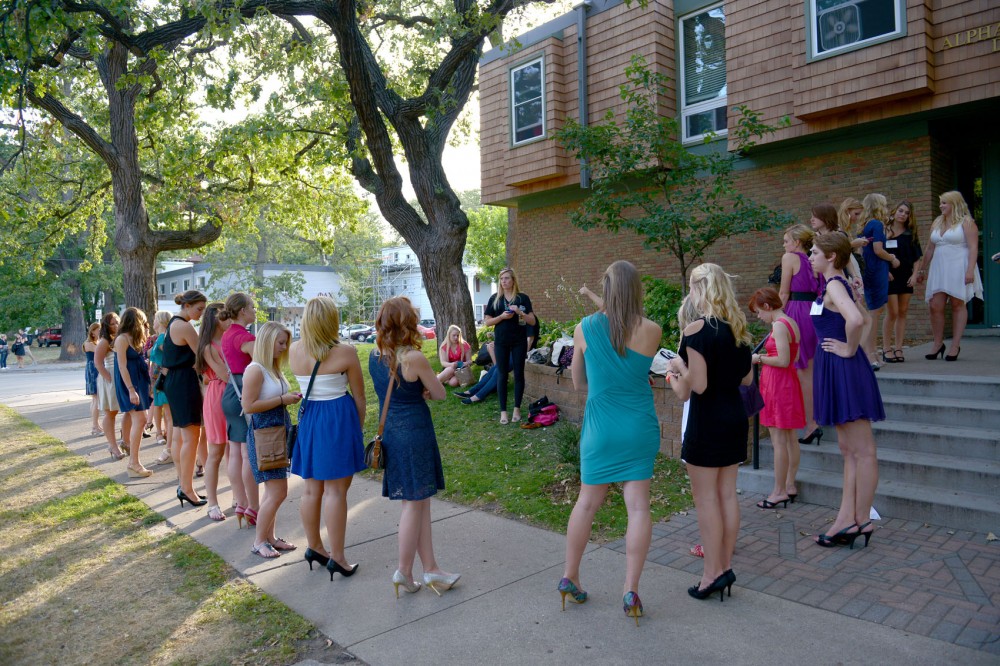Amid fraternity and sorority recruitment festivities, those passing University Avenue last week likely noticed two things — large crowds and a near constant influx of tour groups led by men in light blue shirts.
At the start of the new semester, the University of Minnesota’s greek community experienced a couple of major changes. For the first time in more than a decade, fraternities adopted a more formal recruitment process. For their part, sororities saw a significantly higher turnout than expected.
More than 650 women participated in formal sorority recruitment, surpassing last year’s turnout by nearly 200, according to Rebecca McRoberts, vice president of public relations for the Panhellenic Council.
Sorority chapters were pushed to host more opportunities for women to meet with them, and the number of houses visited in a day was pushed from 10 to 12, McRoberts said.
She said the Panhellenic Council was excited to welcome this relatively large group, especially considering the University has a smaller greek community than many other college campuses.
While sororities enjoyed greater recruitment numbers, the Interfraternity Council hosted a formal recruitment process that enrolled more than 200 men. As part of the process, the men were split into groups of 15 to 20 and then joined with a greek ambassador tour guide, who led them through all 24 chapter houses.
The main differences between the new, formal process and the informal process used in the past are the amount of time spent at each house and the number of houses visited by each potential member.
IFC President Mike Danley said in the past that tour groups would only stop at four or five houses, and then interested men could either visit the remaining houses or revisit houses seen during the guided tours. The touring process totaled nearly 12 hours.
This year, the goal was to allow the potential new members to experience every house, Danley said.
This allowed the men to “find the houses that they really fit into” said Nolan Anderson, president of Delta Chi fraternity.
Nicholas Ditto, Sigma Pi fraternity’s president, said the men were “really driven and really wanted to be involved.”
Though the formal process took longer than the informal process of years past, Ditto said the new system allows fraternities to operate “all at the same time” with “even” chances of recruiting men.
Despite this being the first year for such a process, Anderson described the transition from informal to formal recruitment as “pretty seamless.”
The long day and hot weather didn’t deter Danley from viewing the experience as a positive one.
“It definitely went well, and I am very happy with how it turned out,” he said. “All and all it was a success.”


